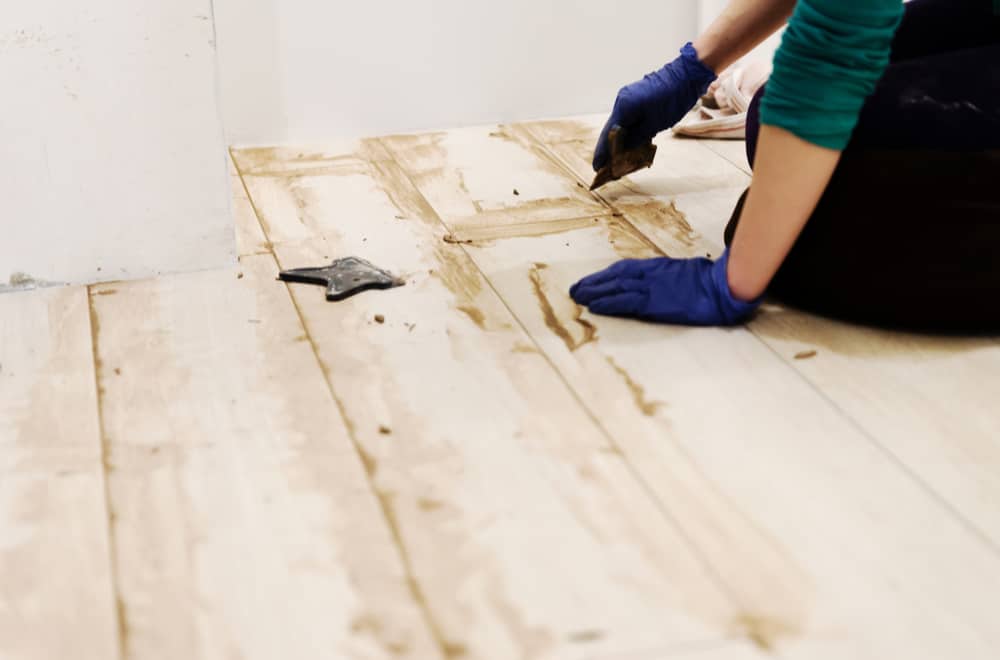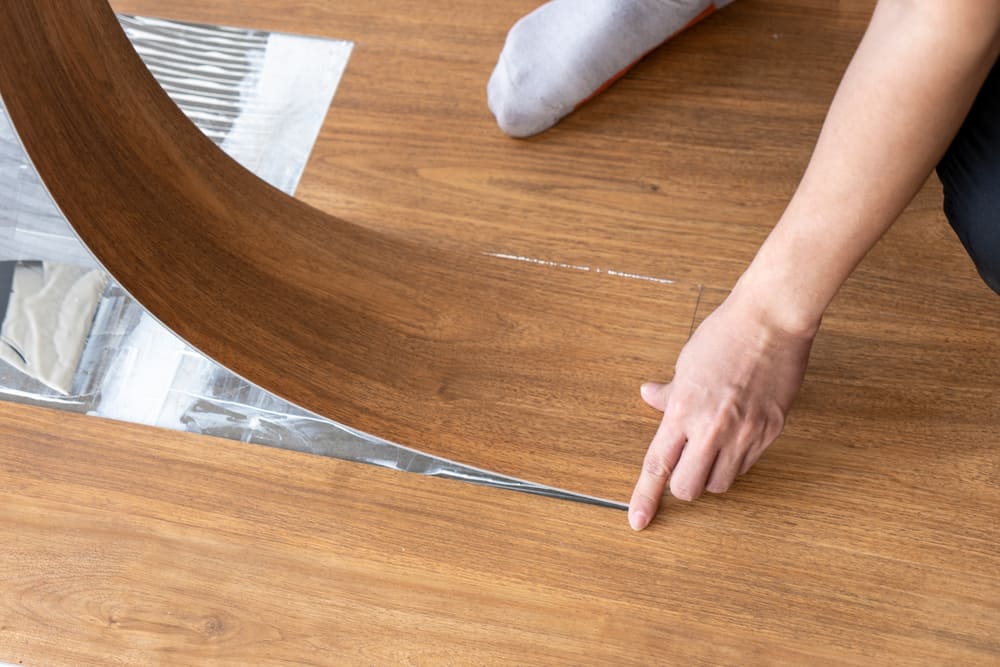Imagine this: you’re walking across your beautiful new vinyl plank flooring, and suddenly, snap. A plank breaks! Disaster! Panic sets in as you envision a laborious and expensive repair process. But fear not, fellow flooring enthusiast! While it’s true that a broken plank can be a pain, it’s not the end of the world. In this comprehensive guide, we’ll explore the best glues for vinyl plank flooring repair, helping you fix that broken plank with confidence and ease.

Image: www.whatisvinyl.com
Vinyl plank flooring, known for its resilience and elegant appearance, has become a go-to choice for homeowners across the globe. But even the sturdiest of floors can experience wear and tear, leading to imperfections like loose planks or even complete breaks. Repairing these flaws is crucial to maintain the integrity and aesthetic appeal of your flooring, and the right glue can make all the difference.
Choosing the Right Glue for Your Vinyl Plank Flooring Repair
Selecting the best glue for vinyl plank flooring repair requires careful consideration. Here are some key factors to keep in mind before embarking on your repair journey:
-
The Type of Vinyl Plank: Different vinyl plank flooring types come with varying specifications. Some are designed to be glued down, while others are intended for click-and-lock installation. Understanding the type of vinyl plank you have is crucial to choosing a glue that’s compatible with its composition.
-
The Nature of the Repair: The severity of the damage will influence the type of glue you need. For minor cracks or loose planks, a flexible adhesive might suffice. Larger breaks or gaps may require a stronger, more robust adhesive.
-
The Subfloor: The glue you choose should be compatible with your subfloor material. If your subfloor is made of concrete, you’ll need a different type of glue than if it’s made of wood.
-
Environmental Conditions: If your flooring is in an area with high humidity or fluctuating temperatures, you’ll want to choose a glue that can withstand these conditions.
The Top Contenders: Exploring Different Glue Options
With so many glue options available, choosing the right one can feel overwhelming. Here’s a breakdown of some of the most popular adhesive types for vinyl plank flooring repair:
1. Construction Adhesive: A Timeless Option
Construction adhesives, often referred to as “gorilla glue,” are a favored choice for vinyl plank flooring repair. These potent adhesives boast exceptional bonding strength and long-lasting durability, making them ideal for larger gaps, breaks, or loose planks.
- Pros: High bonding strength, versatile, can withstand temperature fluctuations.
- Cons: Can be messy to apply, requires proper drying time, may not be suitable for all subfloors.

Image: www.inf-inet.com
2. Contact Cement: For a Quick and Strong Bond
Contact cement is a fast-drying adhesive known for its strong bond. It works by creating a strong hold upon contact, making it ideal for situations where a quick repair is necessary.
- Pros: Quick drying time, strong bond, can be used on multiple surfaces.
- Cons: Can be difficult to remove, mistakes can be hard to rectify, requires a clean application for optimal results.
3. Polyurethane Adhesive: Flexibility and Moisture Resistance
Polyurethane adhesive is a versatile option that offers flexibility and moisture resistance. This feature makes it a suitable choice for repairs in high-traffic areas or spaces prone to humidity.
- Pros: Flexible, moisture-resistant, good adhesion on various surfaces.
- Cons: May require a longer drying time, can be difficult to work with, might not be as strong as construction adhesive.
4. Vinyl Plank Flooring Specific Adhesive: Precision and Compatibility
Many manufacturers provide specialized adhesives specifically designed for vinyl plank flooring repair. These adhesives are formulated to be compatible with the specific material and installation methods of their flooring products, ensuring optimal adhesion and longevity.
- Pros: Optimized for vinyl plank flooring, ensures compatibility, provides reliable bonding strength.
- Cons: May be more expensive, can be harder to find, may not work with floors from other brands.
Expert Insights for a Seamless Repair
To ensure your vinyl plank flooring repair is successful, it’s essential to seek advice from professionals. Here are some expert tips gleaned from seasoned flooring installers:
-
Prep Work is Paramount: Before applying any glue, ensure your subfloor is cleaned and free of debris. This will create a smooth surface for optimal adhesion.
-
Smaller Repairs vs. Larger Repairs: Minor cracks or loose planks can be repaired with a thin coat of adhesive. For larger breaks or gaps, consider using a filler compound or a specialized repair kit designed for vinyl plank flooring.
-
Proper Curing Time: Allow the glue to cure for the recommended time before applying any pressure or walking on the repaired area. This will ensure that the bond is strong and durable.
Best Glue For Vinyl Plank Flooring Repair
Conclusion: Empowering Your Flooring Repair Journey
Repairing a broken vinyl plank can be a daunting task, but with the right tools, knowledge, and guidance, it can be a relatively simple and successful endeavor. By understanding the different glue options and incorporating expert advice into your repair process, you can breathe new life into your flooring and restore its beauty. Never underestimate the power of a well-chosen adhesive to transform a broken plank into a seamless and lasting part of your flooring masterpiece.
Now, go forth and embrace the world of vinyl plank flooring repair, armed with the knowledge and confidence to tackle any challenge that comes your way. Remember, a little DIY spirit and the right adhesive can go a long way in achieving a stunning and durable flooring solution.





